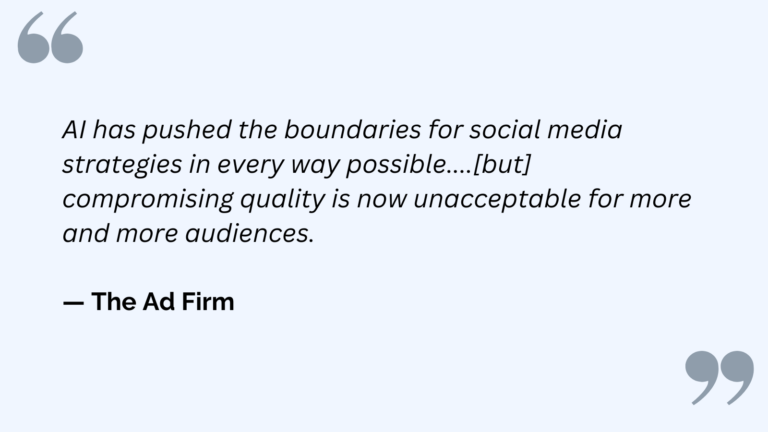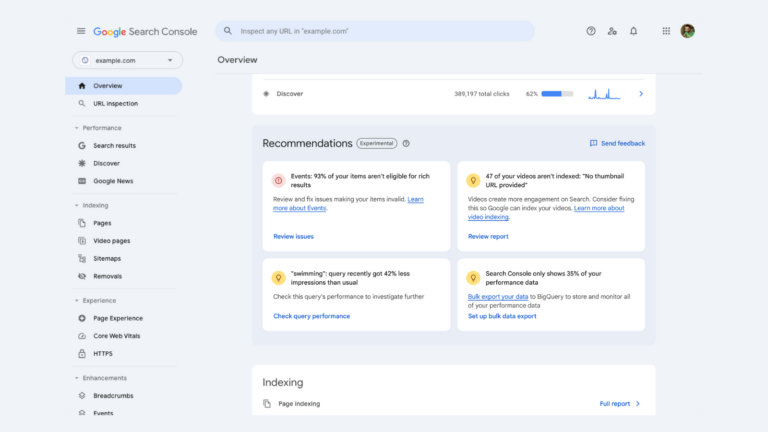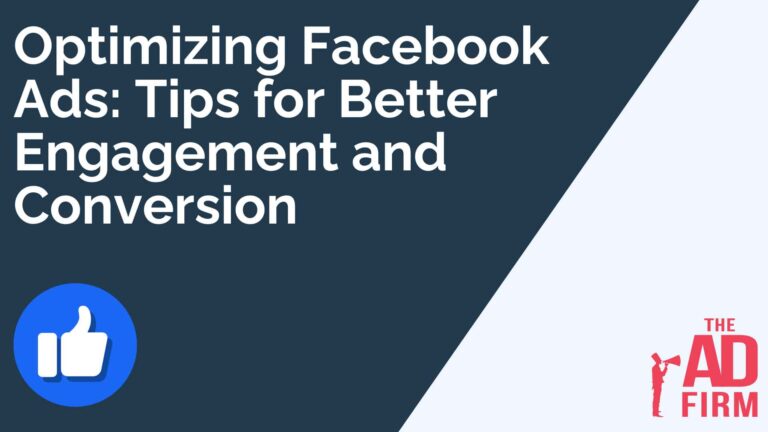Where have the days gone where you would go to your local mall and shop for all your favorite clothes, shoes, toys, etc? Where are the days when you’d go to the mall to hangout and dine with your friends and family? Well, it’s not necessarily gone, it has only moved. Amazon came in like a storm and swept our mentalities for shopping.
All the things you did at the mall, at the nearest plaza, or to shop in general, Amazon has created a world online that mimics it entirely. We all now go online to shop, to talk to people, to research.
You’ve decided to open your own ecommerce business to get as many shoppers to buy your products but how can you compete with giants like Amazon, Walmart, Zappos, etc? You make sure you beat them in SEO for ecommerce websites. Better ecommerce SEO ensures that your products get discovered online, help consumers make their buying decisions, and give them something worth sharing.
The best SEO companies for small businesses will tell you how important it is to have well-thought-out SEO strategies for ecommerce sites. Ultimately, it will affect your ranking on Google. To put in perspective; a study found that only 4.8% of searchers go past the first page on google while online and only 1.1% went to page three. Even more astounding is that 32.5% of all searches click on the first result, so where you land on the first page also matters. An ecommerce SEO expert will agree that rankings matter if you are to go against the giants.
Here are a couple of ecommerce SEO tips that the best ecommerce SEO company can give:
Keyword Research
A true ecommerce SEO expert will tell you that ranking first is great, but are you ranking for a keyword that’s relevant to your product/page? Ranking for the wrong keyword will not lead to many conversions rather it’ll lead to a high bounce rate, which will negatively affect your website. We consider this a bad SEO strategy for ecommerce websites.
Research keywords that your potential customers might be using. Specifically, the keywords you want to focus on are commercial keywords that show buying intent because the goal is to ultimately increase ecommerce sales.
Consider long-tail keywords to your SEO strategies for ecommerce sites because these may be your biggest allies when ranking for relevancy. A long-tail keyword is one of our favorite ecommerce SEO tips because it can help you rank in what specifically your potential customers may be looking for. For example, your long-tail keyword may be “black raincoat for teenage girls” with 150 people searching for this term each month. The volume may not be as high as broad keywords but these potential customers are looking for something very specific and you’re the first to pop up with the relevant product, it’s a win-win!
The best SEO companies for small businesses will tell you to try to stay away from broad keywords. Broad keywords tend to be very competitive, and it can take months or more to rank for them. They might also cast too wide of a net to capture your target audience effectively.
According to MOZ, 70% of search traffic comes from long-tail keywords.
Where There’s New Content, There’s Incoming Traffic
We cannot stress how important it is to have fresh and new relevant content on your site. Any ecommerce SEO company should tell you that one of their favorite ecommerce SEO tips is to keep putting out relevant content for your keywords.
Be the one who answers the questions that buyers are asking but no one else is bothering to answer. This SEO strategy for ecommerce websites has been proven true over and over again. The knowledge you’re providing your potential customer is driving them deeper down the sales funnel to perhaps consider your product since you helped answer a problem they were having.
According to Lemonstand, the conversion rate for websites with content marketing is nearly six times higher than websites without it. When you have engaging content, this entices potential customers to stay on your website longer and establish a connection with your brand.
Consider The Structure Of Your Site
It’s all about making it simple for the users. When things begin to get too complicated to maneuver through your site, the user will use a competitor. A few ecommerce SEO tips from an ecommerce SEO company is to categorize your products and only keep it a few clicks away from your home page. This makes it easy for Google to crawl your site and it keeps the user experience simple enough to operate. Also, this keeps it very easy for you to keep yourself organized, especially when adding in new products.
Another one of our ecommerce SEO tips we ask you to consider is using internal links to help users maneuver through your site with ease. Using internal links for potential customers to use instead of the back button will lessen a shoppers frustration in finding what they want.
Most likely one of the most important ecommerce SEO tips we’ll provide you with is to avoid duplicate content. Ecommerce SEO experts will agree that duplicate content will confuse Google and could possibly lower your website’s authority and lower your ranking. This SEO strategy for ecommerce websites will ask you to choose which pages are worth indexing on Google and which are not. Product pages with very little content does not give Google enough to work with and will not rank highly. Thin content is the idea that there’s not much actual text on an ecommerce site compared to, say, a blog or software site. Imagine dozens and dozens of thin content pages created because of random product attributes and product filter pages. Some of those pages might only list one or two products.
Duplicate content sounds much more difficult than it really is; it should be as simple as it sounds. One of the ecommerce SEO services an ecommerce SEO expert should do is simplify it for their clients.
In its simplest form, many products that are quite the same with little difference should not all be indexed by Google. Rather, you want one indexed page with all these separate products grouped together and provide as much content as possible for these products on this page to make it relevant to the keyword. Indexing a page is a way of telling Google that this URL is the “master version” you’d like to display in search results. This is helpful in duplicate content situations because Google certainly picks up on them.
Switch To HTTPS Now
An ecommerce SEO company can do this rather quickly. If you’re looking for the best ecommerce SEO company, they should be able to provide this ecommerce SEO service. The hosting platform should have a SSL certificate to validate your ecommerce website. What this means is that customers should feel secure about putting in their sensitive information to your website because they can trust it’s not a scam.
Chrome web browser warns users before going on a site that isn’t secure, which can dramatically decrease your ecommerce sales. Contact your ecommerce SEO company about attaining the SSL certificate immediately.
Increase The Speed Of Your Site
The best SEO companies for small businesses will agree that site speed is extremely important but beginning on July 2018, it’s going to be an even more critical ranking factor for Google in mobile. This should come to no surprise because site speed has always been something that online customers highly value. If your site fails to load quickly, your potential customer will look elsewhere before ever looking at your products.
A better user experience will result in higher conversion rates and sales.
Increase The Speed Of Your Site
It’s time to measure all the data your eCommerce website is generating and asses the next proper steps. Now, there is so much data available in reports that it can seem overwhelming what it is exactly you’re looking for. Fear not, you’ll need to come to a realization that some data may be more significant to what your goals are. This is where having set goals from the beginning of your eCommerce journey comes into effect. Let’s take a quick look at some measurable data that can be valuable to your business.
- Site Traffic – Is your business reliant on the amount of visitors it’s getting? How is it they’re finding your site? Looking at this data can help determine which marketing channels are worth investing more into, or knowing where the visitors are located. Are they local? Are they from another country?
- Conversion Rate – Are people buying your merchandise? A low conversion rate can mean a number of issues may be wrong. Things like: site usability, slow website, relevancy; there’s something causing people to leave your website. Get your Sherlock Holmes hat on and discover what the reason might be and address it quickly.
- Cost Per Acquisition – Find how much you’re spending to acquire your paying customers. Is your Return on Investment worth the spend? Perhaps you’ll need to rethink your marketing campaign efforts that would lead to a lesser cost.
These are just some types of measurable data that you should consider when you’re trying to measure the success of your business.
Final Thoughts
We presented many SEO strategies for ecommerce sites that you should digest and put into effect but again, do as much research before you decide to embark on your ecommerce journey. There is still so much more to learn about SEO strategies for ecommerce sites and we encourage to continue learning. The effort that you put in with ecommerce SEO will pay off dividends in higher sales, increased traffic, easy discoverability, etc. In order to go toe-to-toe with the giants, you’ll need to outwork them in your ecommerce SEO efforts. The best ecommerce SEO company will tell you the same thing – research, research, research, then put all you’ve learned into action.








